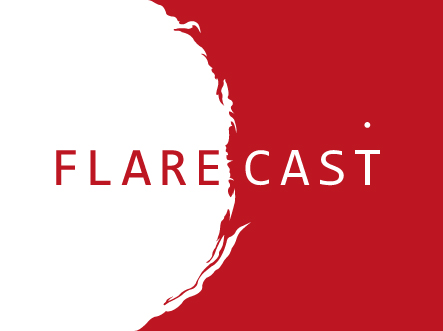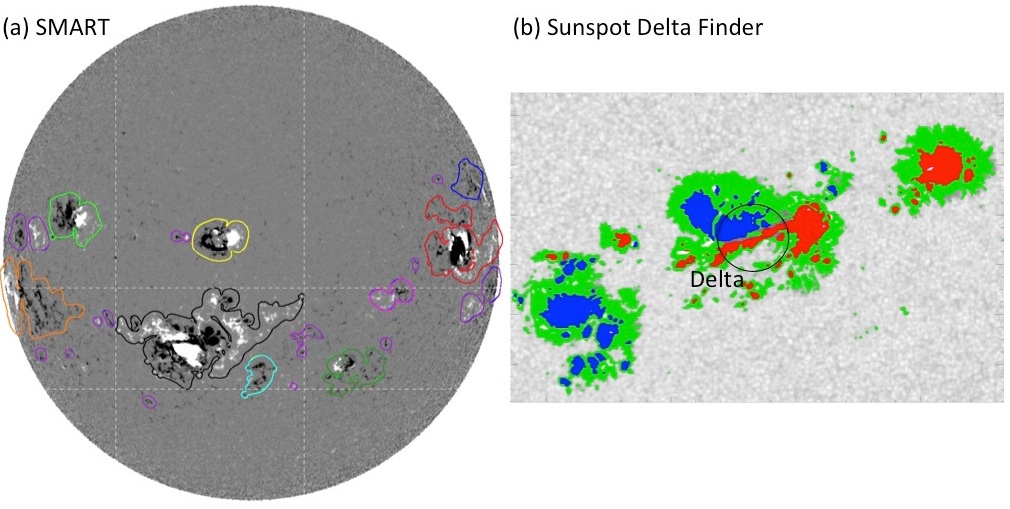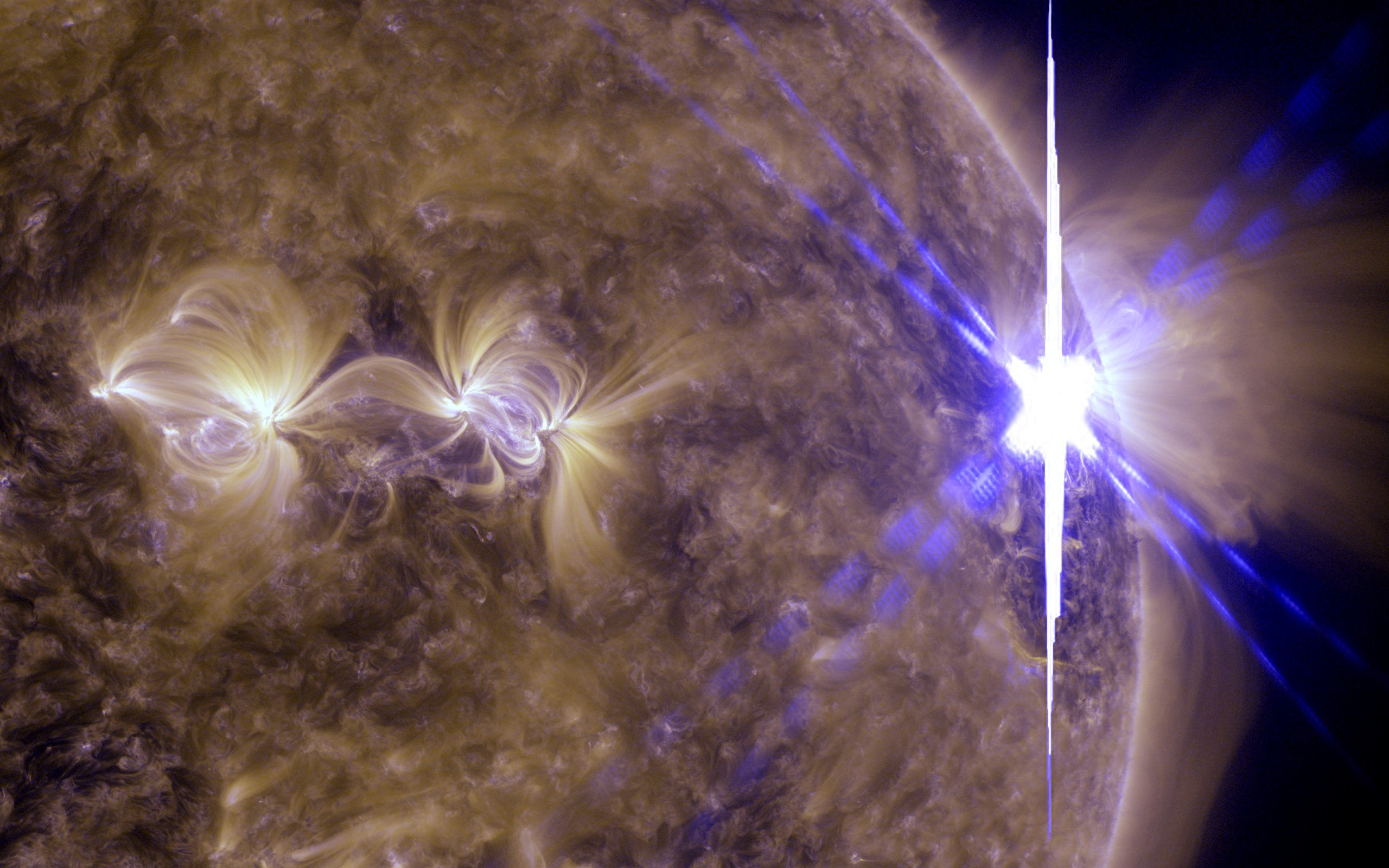FLARECAST: RE-SHAPING THE STATE-OF-THE-ART IN SOLAR-FLARE PREDICTION

The Flare Likelihood and Region Eruption Forecasting (FLARECAST) project of the European Commission kicked-off in
January 2015 as a 3-year PROTEC (Protection of our Assets in Space) Research and Innovation Action (RIA).
By the end of 2017, the FLARECAST consortium will have integrated the most prominent solar flare-predicting parameters into a user-friendly online facility, flexible enough to facilitate future expansion. This facility will allow external users to couple their preferred flare predictors to an array of flare-prediction algorithms. Users will also be able to validate their results on a voluminous archive of SDO/HMI solar active region magnetogram data.
In the meantime, the FLARECAST research team will evaluate existing predictors to identify the best performers, or optimal combinations of them, through the use of a variety of statistical, supervised (e.g., machine-learning) and unsupervised (e.g., clustering) techniques. A robust exploration work package will aim to identify promising new predictors and connect flare prediction to other manifestations of solar eruptive activity. From the outcome of this research, the online FLARECAST facility will prominently feature a near real-time flare prediction service for the benefit of multiple end users, such as industrial and government stakeholders, and the scientific community at large.
The backbone of the FLARECAST concept is the fusion of expertise at the service of an optimal solar-flare prediction. Besides employing European expertise in solar physics, the consortium comprises experts in machine learning and artificial intelligence, big-data handling, software engineering and programming, as well as hardware technicians and maintainers. A distinct but equally important element of the FLARECAST project is dissemination, education, and public outreach. Dissemination will rely on the experience of a national forecasting agency, while education and public outreach will aim to increase public awareness on the detrimental effects of extreme space weather and on the scientific and intellectual challenges of forecasting the unknown.


Contact: Manolis K. Georgoulis (Project Coordinator), D. Shaun Bloomfield (Project Scientist) and the FLARECAST Consortium